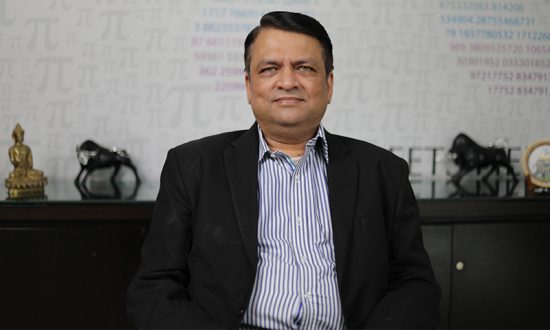Shreeranganath Kulkarni (SK) is the Chief Delivery Officer (CDO) at Birlasoft and is part of the executive leadership team. SK was earlier with Accenture, where he was the Managing Director and Technology Delivery Lead for Financial Services. Prior to Accenture, SK was part of the leadership team at Cognizant and Infosys, where he held key roles. In his more than 30 years of rich experience, he has been involved in all aspects of Technology Services – in Delivery, Sales, and Client Engagement roles. He has also led large businesses units and managed relationships with Fortune 500/Marquee Wall Street clients across North America, UK, Europe, APAC, and the Emerging Markets. SK has also anchored multiple mergers and acquisitions.
The year 2020 reinstated a reset mode, making enterprises relook at their existing business models and accelerating their digital-first approach for business continuity. Digital acceleration, future of work and technology innovation emerged as common themes for global enterprises and sectors alike. Digitalization has played a crucial role across sectors for enabling an ecosystem for business operations continuity. Businesses observed that during these testing times, the survival of the fittest was the ship that would sail them through towards the post-COVID world. Flexibility and agility would be the imperatives for organizations to transition into the new normal and survive post-COVID.
Adoption of Emerging Technologies
While enterprises were already adopting emerging technologies, the pandemic has worked as a catalyst for accelerated technology adoption. Enterprises on their digitalization journey are using emerging technologies like AI, ML, IoT, RPA, etc. to drive digital acceleration, increase resilience, enable scale, and cut costs. According to a NASSCOM CEO survey report, 71% of CEOs expect global technology spend to be significantly higher than 2020. Adopting emerging technologies helps support COVID-19 guidelines for remote operations with contactless interactions and human safety in dangerous environments. The emerging technologies help in better prediction, rapid decision-making, ability to align with customer’s organizational priorities, and pivot to market dynamics.
Hyper- Digitalization Wave
Today, the industry is witnessing an era of change, with technology taking centre-stage to respond to disruption, navigate immediate challenges, and build a more resilient and humancentric economy. The post-COVID world requires adopting hyper-digitalization; a more Phygital (Physical + Digital) world. The current business models will have to be revised and re-defined to help enterprises grow beyond marked boundaries by offering a connected customer experience, automating sales or front-end functions, resolving supply chain disruptions, etc.
Reskilling employees for the hybrid working model
Businesses are seen unleashing new technologies and adopting new ways of business this year. Reskilling has always been one of the top priorities for the IT industry to ensure that the workforce is prepared for newer technologies, disruptions, and can support business continuity. According to a NASSCOM report, India’s demand for digital talent-based jobs is approximately 8x larger than the size of its skilled talent pool. By 2024, this demand is expected to become 20x the available talent pool. Therefore, it is of utmost importance for enterprises to reskill and upskill their workforce in digital technologies like AI & Big Data Analytics, IoT, Cloud Computing, Cyber Security, RPA, Blockchain, AR/VR, 3D Printing, Automation for their survival in the new normal and post-COVID world.
Building a Zero Trust Framework via cloud
A collaboration between IT and HR needs to be built to enable a trusted environment in which sensitive data can be stored, processed, and analysed in the new normal of work-from-anywhere, giving enterprises and clients a feeling of safety that their data is secure. Businesses are re-aligning IT strategies for the new hybrid work environment and addressing increasing cybersecurity concerns by implementing zero-trust security architectures. Adopting cloud enables the IT delivery function to be agile by cutting provisioning time, reducing infrastructure spending by having a mechanism to use it optimally and facilitating system rationalization & modernization. Cloud adoption reduces disruption risk and provides scalability to enterprises.
To maintain its place globally in innovation, the IT Industry needs a policy framework to enable access to the shared knowledge economy and ease of doing business. The key priority for the industry is to create an innovation ecosystem consisting of innovation clusters where talent and capital come together to develop IP-led growth. Businesses, governments, and society need to come together to reimagine, rebuild and transform our economy into one that benefits us all. With the government’s encouragement, the IT Industry is now looking to collaborate with vaccine manufacturers to ensure a safe environment for employees, moving towards survival of the fittest.
The business playbook of the new world will have to be re-written, with Trust, Agility, Talent, and Innovation being the critical pillars. A people-centric approach, advancements in technology, trust-based collaboration, relentless focus on talent, and adaptability to a hybrid work model will be necessary for survival in the post-COVID world.






